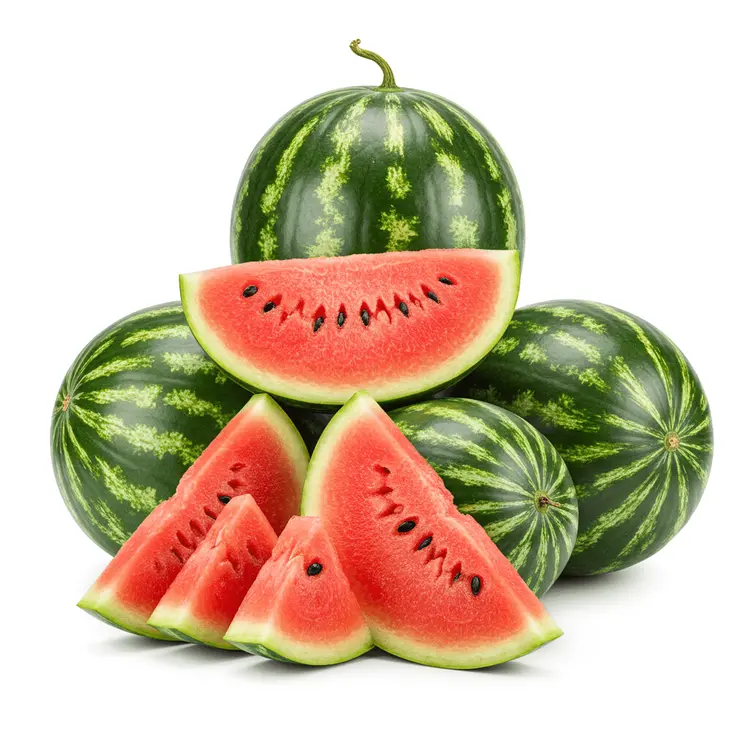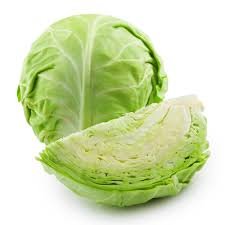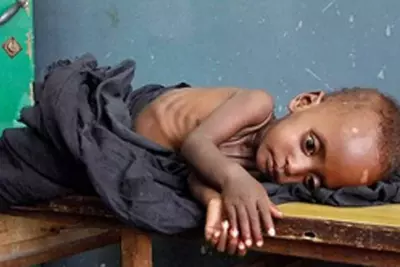Nutrition
Benefits of watermelon

Watermelon is a hydrated fruit and very nutritious to the body. In recent times, water melon is in season and its benefits include preventing dehydration, lowering blood pressure, possibly reducing muscle soreness, and potentially protecting against chronic conditions like heart disease and Alzheimer’s disease.
Additionally, watermelon seeds contain magnesium, iron, zinc, and healthy fats.
-Keeps one hydrated
Watermelon is composed of more than 90 per cent of water. A source explains that we get 80per cent of hydration from what we drink and 20 per cent from what we eat; watermelon can definitely help with this balanced intake
-Healthy digestion
Watermelon contains a high water content and a small amount of fibre. Fibre adds bulk to your stool and keeps one regular, while water helps move waste through your digestive system.
– Weight management
Choosing watermelon over a meal or snack can make one full. Eating watermelon daily helps controls one diet and blood pressure.
– Reduces cancer risk
Lycopene found in watermelon may reduce inflammation and oxidative stress. Chronic inflammation can increase one’s risk for certain diseases, including cancer. Lycopene has the potential to reduce inflammation and keep cancer cells from growing, which reduces one’s risk for the diseases. Studies have shown that increasing lycopene intake can reduce risk for and prostate cancer.
– Watermelon reduces inflammation
A specific combination of antioxidants, lycopene and vitamin C, found in watermelon can lower inflammation and oxidative. Chronic inflammation can lead to serious conditions, including cancer, asthma, heart disease, and type 2 diabetes.
– Protects the skin
The water and vitamins A, B6, and C in watermelon improves skin elasticity and blood flow. Vitamin A helps repair skin cells, preventing dry, flaky skin, while vitamin B6 helps with skin breakouts.
Lycopene can play a role in protecting your skin from the sun.
Nutrition
Benefits of eating cabbage

Cabbage may not be the most attractive vegetable, but it is full of nutritional benefits that can keep the body strong and healthy-from boosting your immune system to improving digestion.
This common leafy green vegetable comes in a range of colours, shapes and sizes that you can use for soup, salad, sandwiches and more. It can be eaten raw or stir-fried.
-Fights inflammation
Cabbages contains anthocyanins, which are naturally occurring antioxidants. Anthocyanins does not only add colour to fruits but rather reduce inflammation. A research showed that people who eat cabbages has lower inflammation levels than those who do not eat.
– Keeps one strong
Vitamin C, also known as ascorbic acid, does a lot of work in the body. It helps make collagen and boosts the immune system. It also helps your body absorb iron from plant-based foods.
– Improves digestion
Cabbages contains phytosterols (plant sterols) and insoluble fibre. These help keeps the digestive system healthy and bowel movements regular. It fuels the good bacteria in your gut that protects your immune system.
– Protects your heart
The anthocyanins found in cabbage help with more than inflammation. Research suggests they reduce your risk of heart disease.
Scientists have found 36 different kinds of anthocyanins in cabbage, which could make it an excellent option for cardiovascular health.
– Lowers blood pressure
Potassium is a mineral and electrolyte that helps your body control blood pressure. One cup of red cabbage can produce a healthy amount of potassium — as much as 6 per cent of your recommended daily value. This could help lower your blood pressure, reducing your risk for heart disease.
-Lowers cholesterol
Cabbage contains two substances — fibre and phytosterols (plant sterols) — that compete with cholesterol to be absorbed by your digestive system. They wind up reducing your bad cholesterol levels and improving your health.
– Maintains bone health and healthy blood clotting
Vitamin K is essential to our well-being. Without it, you’d be at risk of developing bone conditions like osteoporosis, and your blood wouldn’t be able to clot properly. According to research, eating cabbage everyday keep our bones strong and blood cells clotting well.- clevelandclinic.org
Nutrition
Malnutrition as a leadership challenge

Malnutrition persists in Ghana not because solutions are unknown, but because leadership has not consistently elevated nutrition as a national priority. Despite the availability of evidence-based interventions, malnutrition remains under-addressed in policy implementation and financing decisions. This gap reflects a broader leadership challenge that must be urgently addressed.
Nutrition outcomes are shaped by decisions across multiple sectors: health, agriculture, education, sanitation, and social protection. Without strong political leadership to coordinate these sectors, efforts remain fragmented and impact is limited. Policies exist, but implementation is often weak due to competing priorities and insufficient accountability.
High-level leadership is essential to place nutrition at the centre of development planning. This includes ensuring adequate budget allocations, setting measurable targets, and monitoring progress at the highest levels of government. Parliament has a critical role to play in holding institutions accountable for nutrition outcomes, just as it does for economic performance.
International experience is instructive. Countries that have significantly reduced malnutrition have done so through sustained political commitment, often led by heads of government or senior ministers. Nutrition was treated as a development accelerator rather than a welfare issue.
In Ghana, leadership for nutrition must be strengthened at both national and sub-national levels. District assemblies, in particular, are pivotal in translating policy into action, yet they often lack the authority or resources to prioritize nutrition effectively.
Malnutrition undermines human capital development and constrains economic growth. Leaders must recognise that failing to address it carries long-term costs for the nation. Political leadership that champions nutrition will not only save lives but also strengthen Ghana’s development trajectory.
Ending malnutrition is achievable, but only if leaders take ownership of the challenge. Nutrition must be seen not as a sectoral concern but as a national development priority that demands decisive and sustained leadership.
Key Policy Recommendations: The Office of the President should establish a High-Level Nutrition Coordination Council, chaired by the Vice President, bringing together Ministers from Health, Agriculture, Education, Gender, and Local Government to meet quarterly and drive cross-sectoral action. The Ministry of Finance must mandate that at least 5 per cent of each sector ministry’s budget includes nutrition-sensitive interventions with measurable targets. Parliament should create a bi-partisan Nutrition Caucus to champion nutrition legislation and hold the Executive accountable through annual review sessions. District Chief Executives (DCEs) should be given performance contracts that include nutrition outcome indicators, with nutrition coordinators appointed at all 261 district assemblies. The National Development Planning Commission (NDPC) must integrate nutrition targets into the next Medium-Term Development Plan with clear accountability frameworks linking national commitments to district-level delivery.
Feature article by Women, Media and Change under its Nourish Ghana: Advocating for Increased Leadership to Combat Malnutrition project







